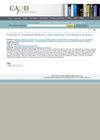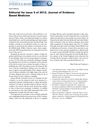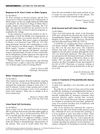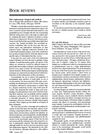February 2018 in “The journal of sexual medicine” Telemedicine is effective for sexual medicine consultations.
November 2016 in “Hanbang an'i'bi'in'hu pibu'gwa haghoeji” Korean and Western medicine have different effects on hair health.
 April 2016 in “Journal of Investigative Dermatology”
April 2016 in “Journal of Investigative Dermatology” Sonic hedgehog signaling is needed for the development of touch-receptor cells in the skin, and the loss of Polycomb repressive complex 2 can lead to more of these cells.

The document discusses how traditional Chinese medicine extracts may affect hair growth in animals but lacks detailed results.
January 2016 in “International archives of medicine” Hair coloring is strongly linked to hair damage and scalp problems.

Traditional Chinese Medicine, combined with antiandrogen therapy, could improve treatment and reduce side effects for genetic hair loss.
 January 2015 in “Hair transplant forum international”
January 2015 in “Hair transplant forum international” The conclusion cannot be provided because the document is not accessible.
 September 2013 in “中国医师杂志”
September 2013 in “中国医师杂志” Human scalp hair follicles grow well in Williams E medium, which may help with hair transplants.
 August 2012 in “Journal of Evidence-Based Medicine”
August 2012 in “Journal of Evidence-Based Medicine” The issue discussed China's research contributions, systematic review improvements, and featured various medical studies and trials.
 September 2008 in “UK vet. Companion animal”
September 2008 in “UK vet. Companion animal” Castration is preferred for non-breeding male dogs with BPH, but other treatments are available with specific pros and cons.
 July 2008 in “Journal of the Islamic Medical Association of North America”
July 2008 in “Journal of the Islamic Medical Association of North America” The document's content cannot be summarized because it is not accessible or understandable.
December 2007 in “Pediatrics in review” Some CAM therapies help with pediatric atopic dermatitis, but more research is needed.
January 2007 in “The FASEB journal” Human hair keratins help nerve regeneration and support Schwann cell activity.
Chinese herb medicines can improve hair growth in mice.
 September 2003 in “Journal of the Royal Society of Medicine”
September 2003 in “Journal of the Royal Society of Medicine” The book has valuable information but is hard to read due to poor writing.
 May 1999 in “Dermatologic Surgery”
May 1999 in “Dermatologic Surgery” The cell culture medium "RPMI" might slightly improve hair graft survival, but not by a significant amount.
 January 1997 in “Journal of The American Academy of Dermatology”
January 1997 in “Journal of The American Academy of Dermatology” The book is a detailed guide on hair replacement surgery and its practices.
 June 1930 in “Archives of dermatology”
June 1930 in “Archives of dermatology” Dermatological conditions are complex, and treatments have mixed results.
August 2022 in “International Journal of Molecular Sciences” DNA methylation controls lncRNA2919, which negatively affects hair growth.
August 2022 in “International Journal of Health Sciences (IJHS)” The combined treatment significantly improved hair growth and thickness compared to the control group.

Treatments for hair loss vary, but cell-based options may be the future.
 January 2016 in “Ankara Üniversitesi Tıp Fakültesi mecmuası”
January 2016 in “Ankara Üniversitesi Tıp Fakültesi mecmuası” Severe hair loss (androgenetic alopecia) is linked to higher risk of heart disease (cardiovascular atherosclerosis).
 January 2015 in “Ankara Üniversitesi Tıp Fakültesi mecmuası”
January 2015 in “Ankara Üniversitesi Tıp Fakültesi mecmuası” Men with severe hair loss may have a higher risk of heart disease.
February 2023 in “Cureus” Male pattern baldness in medical students is linked to higher depression, loneliness, and internet addiction.
 January 2022 in “DOAJ (DOAJ: Directory of Open Access Journals)”
January 2022 in “DOAJ (DOAJ: Directory of Open Access Journals)” The document talks about effective treatments for hair loss, including minoxidil, 5 alfa-reductase inhibitors, low light laser therapy, and platelet-rich plasma.
May 2021 in “Benha Journal of Applied Sciences” Women with androgenic alopecia may have a higher risk of artery problems.
 May 2019 in “Gastroenterology”
May 2019 in “Gastroenterology” Androgen lowering medications don't significantly change HCV-related liver cancer risk in men.
 June 2016 in “American Journal of Cardiology”
June 2016 in “American Journal of Cardiology” Hair loss may indicate higher risk of heart disease.
 January 2016 in “Journal of Dermatology and Cosmetic”
January 2016 in “Journal of Dermatology and Cosmetic” There's no clear link between female pattern hair loss and thickness of the carotid artery, but those with hair loss may have thicker arteries. More research is needed.


















